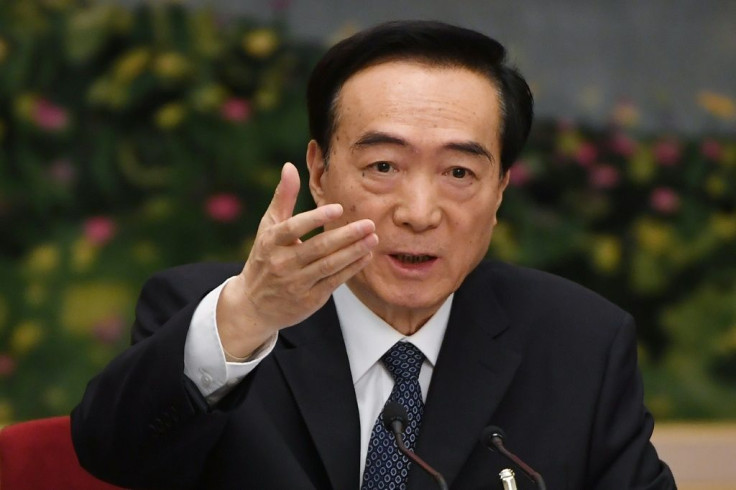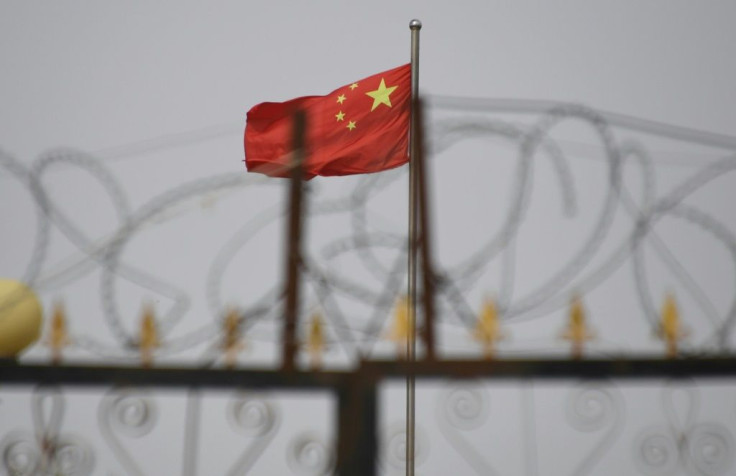H&M Pulls Out Of Chinese Xinjiang Province Over Forced Labor Allegations
KEY POINTS
- H&M has cut ties with their yarn manufacturer in Xinjiang province over forced labor concerns
- The Chinese Uighur minority has faced widespread internment, torture, and forced labor in "reeducation camps" at the hands of the Chinese government
- The U.S. Government recently banned more products from the region, and companies such as the NBA and Disney have either halted activity there or faced controversy
H&M announced it will pull out of China’s Xinjiang province in response to growing concerns involving allegations of forced labor of the Muslim Uighur minority. The company is the latest in a series of businesses and government entities cutting ties with the province over the treatment of Uighurs.
The Uighur minority has been subjected to large-scale imprisonment since as early as 2018 when the U.N. heard reports China had “turned the Uighur autonomous region into something that resembles a massive internment camp.” Beijing initially denied the assertions before saying the actions were necessary to stop sectarian violence.
The Chinese government said it set up “reeducation” camps, but former detainees describe abuse, torture and attempts at cultural and political indoctrination in interviews with NPR. One ex-prisoner, Kayrat Samarkand, said that the crackdown had created a sense of fear in Uighur communities.
“When I arrived back home, nobody in my village would talk to me because they were scared to talk to someone like me who had been in the camps,” he said.
Political leaders in the province say the program has produced widespread peace and prosperity, with all members having “graduated." A study by the Australian Strategic Policy Institute alleges, however, the detainees have simply been moved into a forced work program.

That same study named H&M as one of 82 companies “directly or indirectly benefiting from the use of Uyghur workers outside Xinjiang through potentially abusive labor transfer programs” through its use of a yarn factory in the region.
“Contrary to the report by Australian Strategic Policy Institute, we have never had a business relationship with a mill owned by the yarn producer Huafu Fashion Co. in Anhui province where workers from [Xinjiang] allegedly have been employed, nor with their Aksu unit in [Xinjiang]," H&M said Tuesday in contesting the claims., but admitted it has an "indirect business relationship" with a Huafa Fashion mill that supplies a specific yarn.
"While there are no indications [of] forced labor in the Shangyu mill, we have decided to, until we get more clarity around allegations of forced labor, phase out our indirect business relationship with Huafu Fashion Co., regardless of unit and province, within the next 12 months.”
H&M is only the latest entity to pull out of the region, a group that includes the NBA. The U.S. Department of Homeland Security issued a series of orders targeting the products of forced labor, and Disney has come under fire for filming in Xinjiang and thanking a number of Chinese agencies in the credits of “Mulan,” including one listed by the U.S. government as “implicated in human rights violations and abuses in the implementation of China's campaign of repression, mass arbitrary detention, and high-technology surveillance against Uighurs."

© Copyright IBTimes 2025. All rights reserved.




















